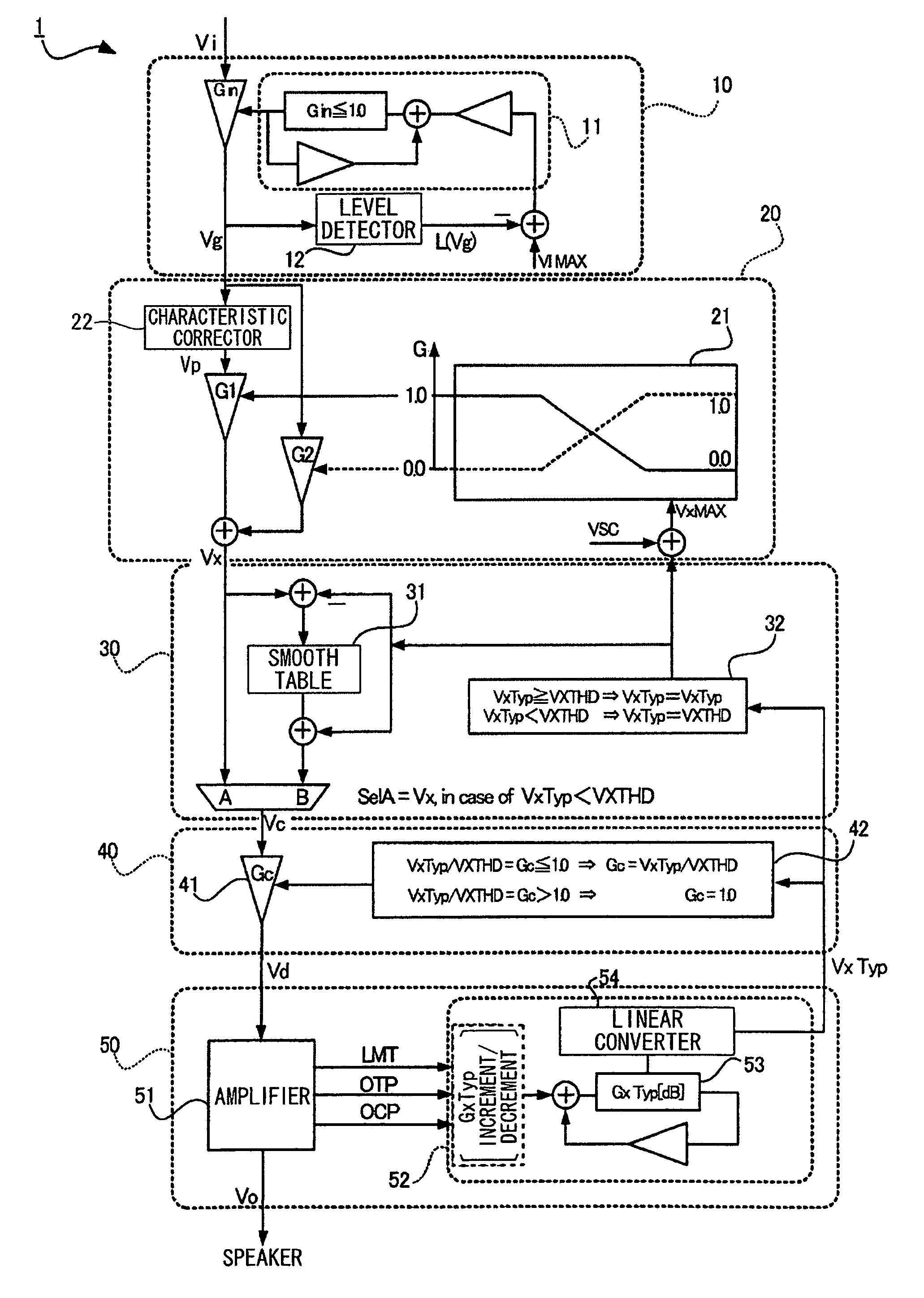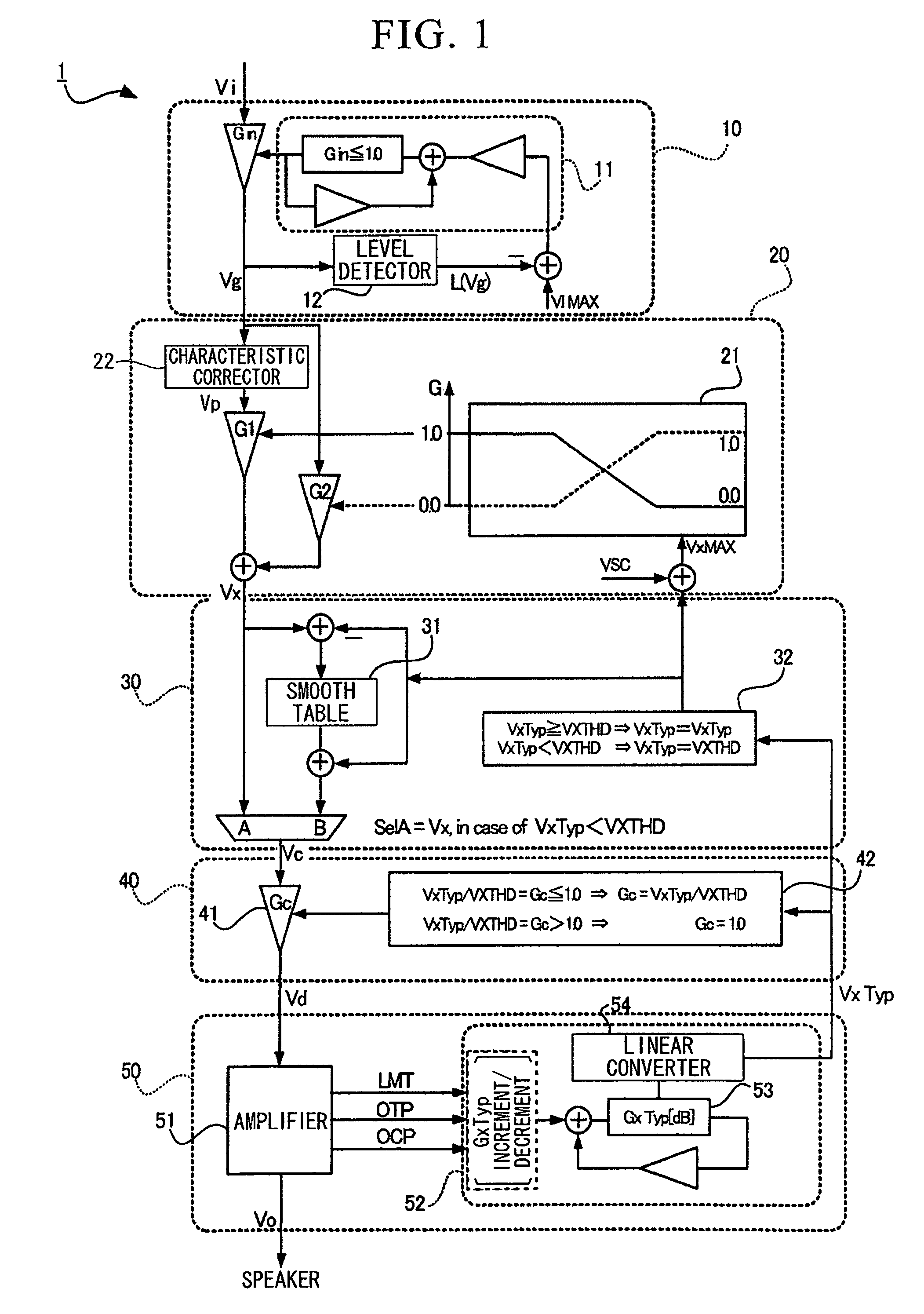Amplifier circuit utilizing characteristic correction and smooth curvilinear correction
a characteristic correction and amplifier circuit technology, applied in the field of amplifier circuits, can solve the problems of artificial distortion and offensive sound, speaker to produce a deficient sound lacking power and dynamics, and achieve the effect of preventing clipping and adequate power
- Summary
- Abstract
- Description
- Claims
- Application Information
AI Technical Summary
Benefits of technology
Problems solved by technology
Method used
Image
Examples
Embodiment Construction
[0027]The present invention will be described in further detail by way of examples with reference to the accompanying drawings. In this connection, these drawings do not necessarily reflect the accurate dimensions and factors in designing the circuitry.
[0028]FIG. 1 is a block diagram of an amplifier circuit 1 according to a preferred embodiment of the present invention. The amplifier circuit 1 is constituted of a first gain correction unit 10, a characteristic correction unit 20, a smooth curvilinear correction unit 30, a second gain correction unit 40, and an amplification unit 50.
[0029]The first gain correction unit 10 includes a low-pass filter (LPF) 11 and a level detector 12. The first gain correction unit 10 transmits an input signal Vi toward the characteristic correction unit 20. Herein, the first gain correction unit 10 converts the input signal Vi into a first conversion signal Vg while fixing the maximum value of the first conversion signal Vg to the predetermined value.
[...
PUM
 Login to View More
Login to View More Abstract
Description
Claims
Application Information
 Login to View More
Login to View More - R&D
- Intellectual Property
- Life Sciences
- Materials
- Tech Scout
- Unparalleled Data Quality
- Higher Quality Content
- 60% Fewer Hallucinations
Browse by: Latest US Patents, China's latest patents, Technical Efficacy Thesaurus, Application Domain, Technology Topic, Popular Technical Reports.
© 2025 PatSnap. All rights reserved.Legal|Privacy policy|Modern Slavery Act Transparency Statement|Sitemap|About US| Contact US: help@patsnap.com



